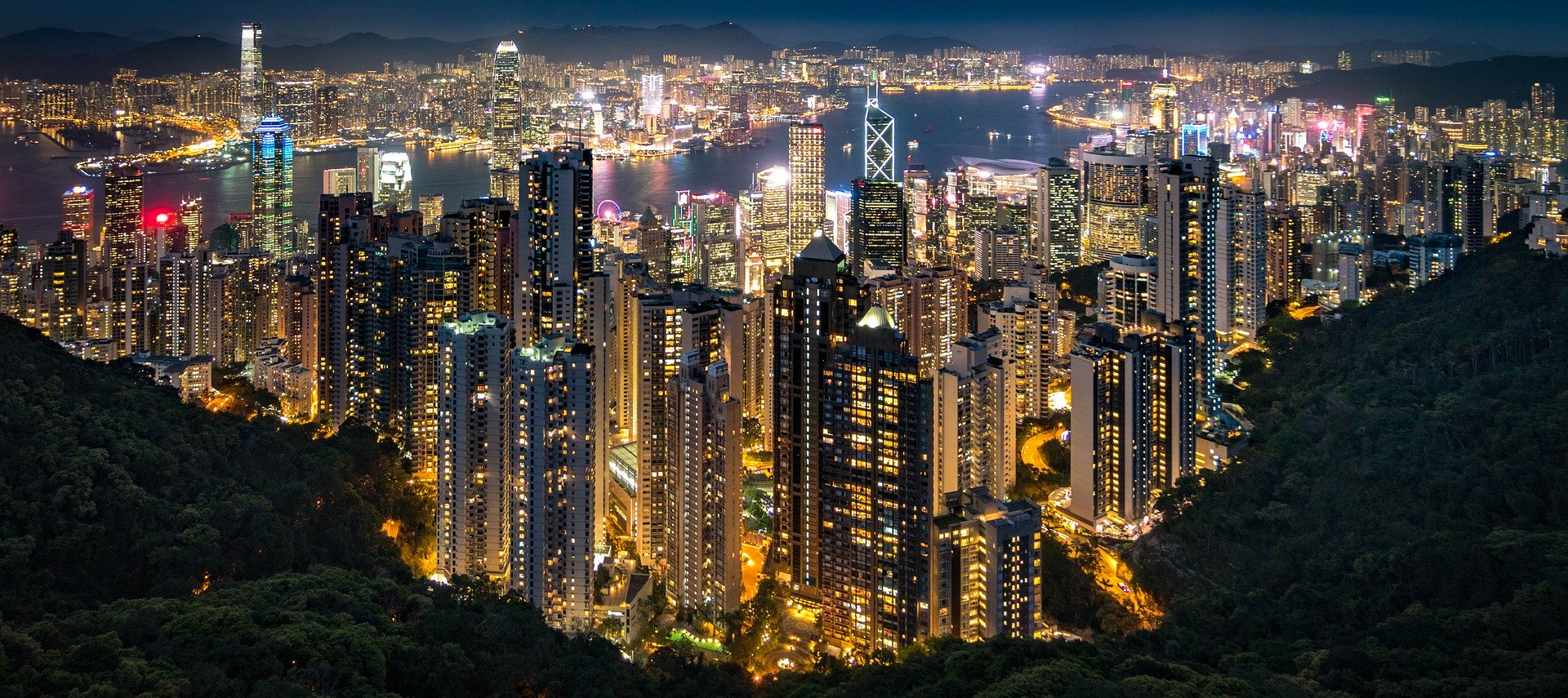
This week, Hong Kongers marked the one-year anniversary of their pro-democracy movement by taking to the streets once again in protest of China’s latest and most aggressive assault on the island’s autonomy. In this blog, the International Republican Institute (IRI)’s Christopher Olsen reflects on both the challenges Hong Kongers face in their struggle for democracy and the incredible resolve of the protest movement.
One humid evening in 2012, I stepped out of an airport taxi into an apartment building along neon-bright Hennessy Road in Hong Kong’s Causeway Bay neighborhood, bearing a single suitcase and a freshly stamped work visa. The apartment my company provided for my first month was unremarkable except for a single, large window overlooking the thoroughfare below – a window onto social turmoil and Hong Kongers’ broad aspirations for their free society.
For visitors, Hong Kong does first impressions well – a vibrant metropolis set amid tall mountains and lush islands. After each day of exploring, I’d return to my apartment and look out my window, taking in ads for luxury fashion and the bustle of shoppers. I thought I was starting to figure out my new home, but the annual July 1 protests marking the date the island’s sovereignty was transferred from Britain to China made it clear how limited my postcard view of Hong Kong actually was. Tens of thousands of marchers of all ages passed below my window, hoisting signs and shouting pro-democracy slogans in a seemingly unending demonstration of people power. It was democratic politics like I had never seen before: one of the world’s greatest exercises of the freedoms of assembly and expression.
Hong Kong is often described as semi-democratic but free: a blend of limited universal suffrage and centralized control but with freedom of assembly and expression. Yet these descriptions don’t fully capture the degree to which so many Hong Kongers embody an unparalleled democratic spirit.
One of my Hong Kong friends put it aptly: Hong Kong is China’s conscience. The Chinese Communist Party (CCP) erases atrocities and mistakes from the public record, censors any broadcast that utters banned words like “Tiananmen,” and goes to great lengths to remove its misdeeds from the collective consciousness. Yet none of these efforts, he said, would ever fully succeed as long as Hong Kongers remembered, marched and spoke out. That sense of commitment to universal human rights is a constant of Hong Kong activism, and a deep source of fear to the CCP, which craves total control over not only its citizens’ activities, but their values.
In the eight years that have passed since I first became acquainted with this remarkable place, the CCP has committed itself to not only entrenching its control over Hong Kong’s government, but also altering its people’s way of thinking. Pro-Beijing sympathizers have gradually filled positions of power in Hong Kong’s university administrations to limit student activism and monitor academic opinions. Press freedom has severely degraded as the CCP entrenched its control of media outlets, and journalists now risk violence or expulsion just for pursuing the truth.
Recent weeks have seen Beijing carry out its most aggressive push to stamp out dissent in Hong Kong, with plans to impose draconian national security laws on the territory. These laws would criminalize activities deemed subversive to the Chinese government, with the state and an increasingly compromised judicial system as the sole arbiters of what constitutes subversion.
In mainland China, the government uses subversion and related charges as a catch-all to detain and silence individuals at any time, including for past actions. Civic and human rights activists therefore operate under constant fear that the arbitrary justice system will turn its sights on them. The CCP is now remolding Hong Kong in the mainland’s image. U.S. Secretary of State Mike Pompeo’s recent remarks indicating that the U.S. no longer considers Hong Kong to possess a high degree of autonomy underscores the realities of this shift.
Yet Hong Kong’s democratic spirit has proven time and time again to be beyond the CCP’s reach – and the revival of a robust protest movement after months of lockdown reveals a people pushing forward against Beijing’s pursuit of total control. They are motivated and focused, but also scared of what the laws may mean for them and their families. The pro-democracy cause enjoys widespread public support, and the return of broadly peaceful demonstrations shows that the looming security legislation has galvanized Hong Kongers. Legislative elections are planned for September, and despite expected machinations by Beijing to steer the election in its favor, the pro-democracy camp is determined to win. What worries many is just how far the CCP may go to prevent that victory, and at what cost.
Hong Kong is a special place. It is both part of China and yet unto itself – jealously guarding its sovereignty and democratic traditions in the face of ever-increasing encroachment. This precious autonomy is in mortal danger, and Hong Kong’s fate will have consequences far beyond the region. The world has a vested interest in Hong Kongers’ struggle, and it is vital that the international community clearly articulate the consequences should the CCP effectively end the “One Country, Two Systems” principle that legally guarantees Hong Kong’s freedoms. Hong Kong is paying a heavy price for Beijing’s insecurity and fear of its own people. Now, above all, we must take concrete steps to stand with them and let the CCP know that its repression will not go unanswered.
Top